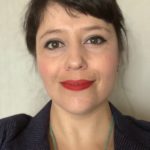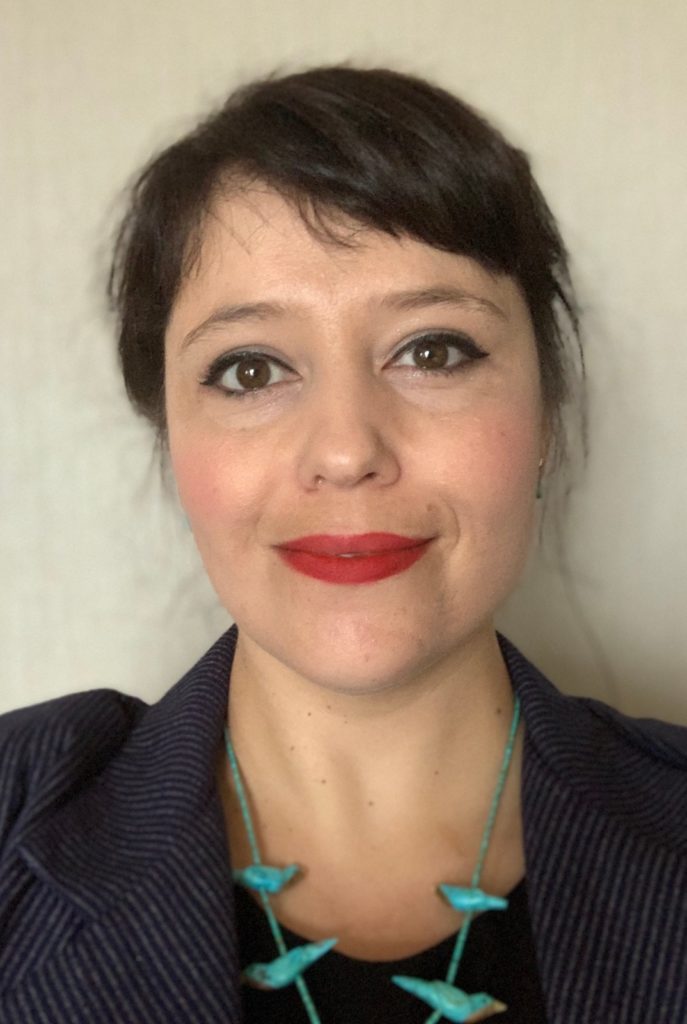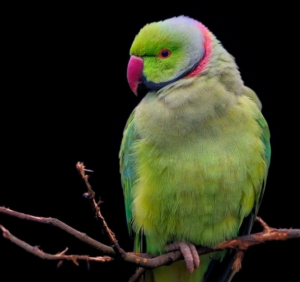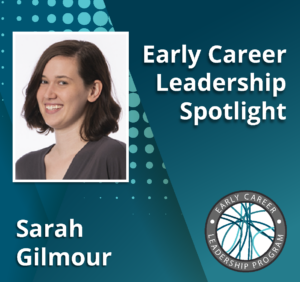We’re taking time to get to know the members of the GSA’s Early Career Scientist Committees. Join us to learn more about our 2021 early career scientist advocates.

Alida de Flamingh
Communication and Outreach Committee
Carl R. Woese Institute for Genomic Biology, University of Illinois at Urbana-Champaign
Research Interest
My research has three overlapping themes: I am interested in merging paleogenomic research, which is the study of ancient genomes, with archeological, conservation, and computational science approaches to provide novel interpretations of historical and contemporary events in the human and wildlife context; I apply population genetic and genomic methods to develop actionable strategies for conserving and protecting biodiversity through wildlife conservation genetics; and I develop bioinformatic tool sets for analyzing and interpreting genetic and genomic datasets in a multi-disciplinary frameworks. These tools can be directly applied to genomic data to aid endangered species conservation. I am considerate of the impacts of my research on communities and other stakeholders, and I aim to combine these research themes with community-engaged approaches to generate results that resonate with academics and collaborating communities.I am particularly interested in the potential for overlap between these themes, a strategy that I have initiated during my PhD and postdoctoral research.
I received my PhD in ecology, evolution, and conservation biology at the University of Illinois at Urbana-Champaign (UIUC) in May 2020. My thesis work focused on the conservation genetics of African elephants, where I used spatial, genomic, and bioinformatic approaches to produce outcomes that aid conservation planning in this species. I built on this knowledge base during my first postdoctoral appointment where I developed and tested an accessible, non-invasive DNA collection and analysis protocol that allows for genome-scale analysis of wild and endangered species. My current postdoctoral appointment includes the application of advanced ancient DNA molecular analyses and the anthropological, ecological, and evolutionary interpretation of these genomic results. I actively participate in research partnerships and community engagement with Indigenous communities in the USA and Canada. My research also involves the analysis of ancient non-human animals, with the underlying theme of using historic information to advance present-day and future conservation of threatened and endangered species.
As scientists, we are still realizing the opportunities and applications associated with genomic research, especially in STEM fields outside of medical and health research. Each of my research themes individually and uniquely capitalizes on the rapid growth of data production as we move from the era of genetics to the reality of genomics. This unstoppable and rapidly developing transition into the field of applied genomics is very exciting and presents a playfield in which I am exhilarated.
As a PhD-trained scientist, you have many career options. What interests you the most?
In addition to research, I have a very strong commitment to teaching and mentoring, and I am dedicated to increasing diversity, equity, inclusion, and accessibility (DEIA) efforts within academic STEM. My lived experience and positionality as an international scholar that started her career in one of the most diverse countries and continents – South Africa – has fostered in me a deep appreciation and respect for the more robust, equitable, and sustainable systems that can be built through the collaboration of people with diverse backgrounds, cultures, and faiths. I hope that through my research and teaching, I will be able to encourage students to feel engaged, respected, and confident, so that they may seek opportunities that celebrate their individual and unique abilities as scientists and leaders in STEM. I am actively pursuing academic career opportunities, e.g. postdoctoral positions and assistant professorships, that will allow me to stay in academia. My hope is that a career within academia will not only allow me to pursue a productive and innovative research program, but will also provide a platform from which I can actively promote DEIA in STEM.
In addition to your research, how do you want to advance the scientific enterprise?
I see my career choice as an opportunity to work at increasing representation and retention of minority and historically excluded groups in STEM. These groups, which include but are not limited to Black and Indigenous people of color, women, and LGBTQ communities, have faced extraordinary historic and ongoing discrimination in STEM and within the field of genetics, and often have added burdens and barriers that affect their ability to succeed and thrive in STEM fields and within academia. The STEM field that overarches my research interests – ecology and evolutionary biology – holds within it massive opportunities for growth and implementation of DEIA agenda. For example, I am part of a graduate and early career faculty group that seeks to promote diverse and anticolonial syllabi in life and environmental sciences (Diversifying Syllabi). We have developed a list of college-level resources (articles, podcasts, videos, etc.) that can be used as teaching tools in undergraduate classrooms. These resources, for example, cover topics of racial justice, traditional ecological knowledge, environmental racism, and other relevant topics. I am eager and excited to start on my path as early-career faculty in STEM so that I can start implementing DEIA-orientated action plans and agenda!
As a leader within the Genetics Society of America, what do you hope to accomplish?
Within the GSA, I am most excited about establishing enduring collaborations with colleagues that have similar research and career interests. I am also grateful for the opportunity to learn and interface with established mentors such as Dr. Stephanie Mohr and Dr. Elisabeth Marnik. As part of the Communication and Outreach Committee, I’m aiming to promote science communication and gain experience with publishing my own research in less formal contexts; I’ve had the opportunity to meet and collaborate with early-career researchers at different institutions in the US and abroad, get informal feedback on science communication articles before submission, and attend a workshop by the freelance science writer Rachel Fairbank. These opportunities are especially beneficial to the development of my skill set and profile as an early career scientist.
Previous leadership experience
GSA Early Career Leadership Program: Communications and Outreach committee – Genetics Society of America (2021-present)
Champaign County Audubon Society, Urbana-Champaign, IL: Program Chair (2021-present)
Graduates in Ecology and Evolutionary Biology (GEEB) President, Registered Student Organization at the University of Illinois, Urbana-Champaign (2018-2019)













